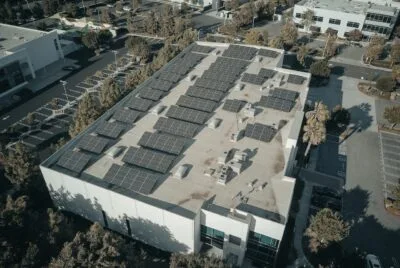Different Commercial Solar Panel Wattage and Their Capacity
We may earn a commission for purchases made using our links. See our disclosure to learn more.
In today’s world, with the growing concern about sustainability and the environment, solar energy has become a highly desirable power source. Solar panels, capable of converting sunlight directly into electricity, are a practical choice for homeowners and businesses alike. The versatility of these solar panels varies with their wattage, which ranges from smaller 50-watt panels to hefty 500-watt ones. Let’s discuss some Commercial Solar Panel Wattage in this article.
50 Watt Solar Panel
Starting with the lower end of the spectrum, a 50 watt solar panel is a compact yet efficient energy source. These panels are typically used for smaller applications, such as charging portable devices, powering outdoor lights, or other small-scale projects. They are popular among recreational vehicle owners for their portability and ease of installation.
The capacity of a 50 watt solar panel depends on the amount of sunlight it gets. Ideally, in full sunlight, it could generate around 50 watts per hour. However, this is contingent upon receiving optimal sunlight, which may vary depending on geographical location, weather conditions, and the time of year.
100 Watt Solar Panel
The 100w solar panel represents a significant step in capacity and application versatility. These panels are popular for off-grid applications, like in a cabin or a tiny house, or for powering small appliances and systems in a residential setting.
In context, a 100w solar panel could produce around 100 watts of power per hour under ideal sunlight conditions. This could generate 400-600 watt-hours of electricity per day, given 4-6 peak sunlight hours. This power output can run small devices like laptops, lights, and fans.
250 Watt Solar Panel
Moving up the wattage ladder, we come to the 250 watt solar panel, commonly used for residential and small commercial purposes. These panels provide a middle ground between lower and higher capacity panels, like the 400 watt solar panel or 500w solar panel.
250 watt solar panels have greater efficiency and power production capabilities. In peak sunlight conditions, these panels can produce around 250 watts per hour. Over a day, this could amount to 1,000-1,500 watt-hours, depending on sunlight exposure.
These panels can power larger appliances such as refrigerators, washing machines, and even tiny air conditioners because to their increased capacity. In addition to their use in standalone systems, these panels are frequently found in solar arrays for residential and commercial applications.
350 Watt Solar Panel
The 350-watt solar panel is the following tier up in terms of power output. These panels are so much more efficient that they are a great option for both domestic and industrial use. They are able to deliver considerable strength yet are very compact and lightweight.
A solar panel with a 350-watt output in ideal sunlight may generate about 350 watts per hour. An average of 4-6 hours of peak sunlight each day equates to about 1,400-2,100 watt-hours. Most home appliances and even some light commercial uses are within the scope of this upgrade.
400 Watt Solar Panel
The 400-watt solar panel is the most powerful of the commercially available options. Due to their enormous output, these panels are typically installed on bigger residential houses and commercial structures.
A 400-watt solar panel, when exposed to ideal sunshine, may generate between 1,600 and 2,400 watt-hours per day. Several home appliances or a sizeable portion of a business’ power needs could be met by a single 400-watt solar panel.
500 Watt Solar Panel
The 500w solar panel is the most powerful option available. Because of their great efficiency and power production, these panels are commonly employed in business or manufacturing settings.
In optimal conditions, a 500 watt solar panel can generate around 500 watts per hour. Over the course of a day, this could translate to 2,000-3,000 watt-hours, given the 4-6 peak sunlight hours. These panels can support larger power requirements, making them suitable for large residences, commercial establishments, or even small industrial applications.
Your Solar Panel Needs
Understanding your solar panel needs is an essential step before making a purchase. Many variables come into play when deciding which solar panel wattage is right for you. From the 50 watt solar panel ideal for small-scale needs to the larger 500w solar panel suitable for industrial applications, the correct choice will depend on your specific needs.
Evaluating Your Energy Consumption of Different Commercial Solar Panel Wattage
Start by evaluating your energy consumption. Look at your utility bills and determine how much energy you use daily. This information is crucial as it provides a clear understanding of your daily power requirements. Remember that the power output from solar panels is measured in watt-hours per day, so aligning this with your daily energy consumption will help guide your decision.
Consider The Available Space
The available space for installing solar panels is another critical consideration. Higher-wattage panels like the 400 watt solar panel or 500w solar panel are generally larger in size and may require more installation space. Conversely, if you have a limited area, smaller panels like the 100w solar panel or 250 watt solar panels may be more suitable.
Sunlight Exposure
The amount of sunlight your location receives will also influence your choice. More sunlight means more energy production. For example, if your location gets ample sunlight, you might do well with fewer high-wattage panels, like the 350 watt solar panel. However, if sunlight is less abundant, you might need more panels or opt for lower-wattage panels, like 250w solar panels, to ensure adequate energy production throughout the day.
Cost-Effectiveness
Lastly, cost-effectiveness should also be considered. While higher-wattage panels, like the 400 watt solar panel, might seem expensive upfront, their efficiency might lead to significant savings in the long run. On the other hand, if your energy needs are modest, smaller panels like the 100w solar panel or even the 50 watt solar panel could be more cost-effective.
Conclusion
Solar panels offer a sustainable and efficient way to generate electricity. From smaller 50 watt solar panels, ideal for smaller applications, to the hefty 500 watt solar panels perfect for commercial use, there’s a solar panel suitable for every need. It’s important to understand that power output depends on several factors, including the amount of direct sunlight the panel receives, geographical location, and weather conditions.
With solar panels, we can enjoy electricity that’s not just renewable and clean but also potentially cost-saving in the long run with Different Commercial Solar Panel Wattage available. Read more at Solar Power Knowledge Hub.




